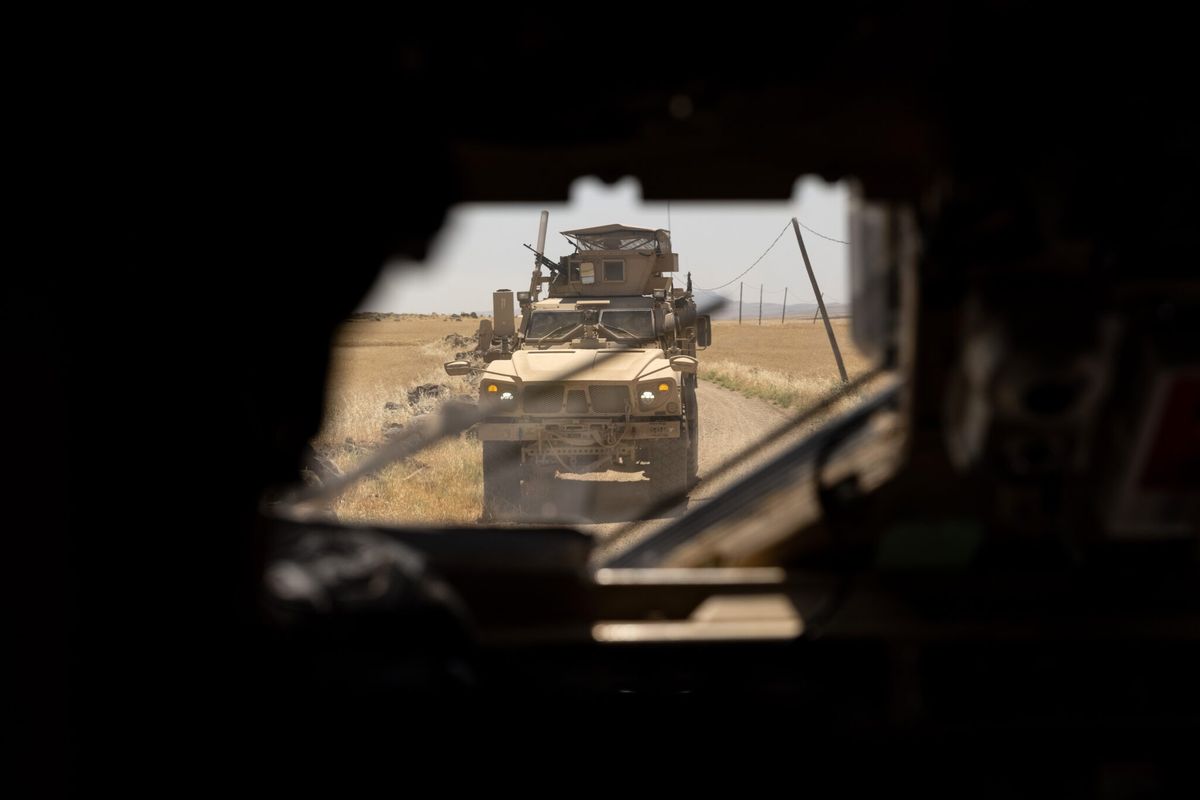Vice President Joe Biden touched down in Iraq on Thursday for a surprise visit to the country as it faces a deepening political crisis that threatens the fight against ISIS.
This was Biden’s first trip to Iraq since 2011, and the vice president is the third and highest-level U.S. official to head to Baghdad this month. Political chaos stemming from stymied reform efforts pursued by Prime Minister Haider al-Abadi and pushed for by thousands of protestors marching in the streets has engulfed the government for weeks. Biden’s visit came just after Iraq’s parliament on Tuesday partially approved Abadi’s attempt to reshuffle the Cabinet and install independent technocrats to combat corruption.
Political and sectarian tensions remain high, and there are deep concerns about what the state of affairs in Iraq could mean as the battle to defeat the terrorist group intensifies. With the fear that some of the military gains made against ISIS could be lost due to the turmoil in Baghdad, Biden — the “go-to guy” for political crises in the country — arrived at a crucial moment, experts tell The Cipher Brief.
Cipher Brief network contributor Perry Cammack, an associate at the Carnegie Endowment for International Peace, said the vice president is “seen as the heavy on Iraq” given his long history of working on Iraqi issues.
“He’s remained interested and passionate about Iraq, and at points when you’ve had political crises, he’s been the go-to guy. And we’re at one now, where my sense is that the military campaign has had quite a bit of success, particularly in Iraq, but the challenge is it’s a two-faced strategy — political and military,” Cammack, who worked on the Senate Foreign Relations Committee staff of then senator Biden from 2003-2006, said. “In some ways, I think the political piece is even more important in terms of what comes next.”
Michael O’Hanlon, co-director of the Brookings Institution’s Center on 21st Century Security and Intelligence, said Biden has known many Iraqi officials for decades and understands the political and strategic elements at work in the country.
“He’s perhaps deduced it’s an issue he can play a useful personal role in,” O’Hanlon said.
But Biden wasn’t bringing any new incentives to the table, like a specific economic offer or security partnership. He was looking to influence based on his sheer “force of personality,” O’Hanlon noted.
Without creating enough additional new leverage, there was little Biden could do beyond offering Iraqi political leaders face time with a well-known personality who at least has President Barack Obama’s ear.
“I’m not sure that force of personality will be enough to change anything major,” O’Hanlon said. “The bottom line is there’s nothing that Biden’s going to be able to do magically that other wouldn’t be able to do — no one person has the power to turn this place around.”
The turbulent political chaos and sectarian divisions in Iraq are of vital concern in the fight against ISIS beyond the battlefield, and White House press secretary Josh Earnest on Thursday called the surprise visit “a good indication of the United States' continued support for Prime Minister Abadi's efforts to unify the nation of Iraq to confront” the terrorist group.
“Abadi is seen as having much better instincts and being much better than [former PM Nouri al-Maliki], but he also, frankly exerts much less political control,” Cammack said. “So some of this will be about testing Abadi and his intensions, and pushing him to be bolder.”
Biden’s visit was also about promoting a “political constellation” around Abadi that shores up the prime minister’s support, according to Cammack. With the goal to retake Mosul on the horizon, addressing the key sectarian divides that characterize Iraqi politics is crucial to stabilizing and securing the country in the short-term, and in the potential post-ISIS environment.
“The Sunni political leadership hates ISIL, but many of them hate what they see as the leadership in Baghdad just as much. Without some kind of political recalibration that really gives the Sunni areas in Iraq some buy-in to the political powers in Baghdad — well, you can’t create something with nothing,” Cammack said.
Beyond its political crisis and the fight against ISIS, Iraq is also facing difficult fiscal challenges given plunging oil prices and a huge reconstruction bill as cities are taken back from ISIS control.
Biden met with Abadi for nearly 90 minutes on Thursday, and separately with Parliament Speaker Salim al-Jabouri. Biden said he and Abadi talked about “the plans that are in store for Mosul and the coordination going on with all of our friends here.”
“I’m very optimistic,” Biden said, according to the press pool report, adding that the progress being made against ISIS is “real, serious, and it’s committed.”
A visit by the vice president to Iraq “does have some influence,” Cammack noted.
“All of the main factions value the relationship and none of them want to be seen as being the problem here,” he told The Cipher Brief. “But the flip side here is that this is symptomatic of the same political wrangling that’s been there since 2003. You can imagine some positive steps coming out from this, but in terms of the fundamental divides, they’re much bigger than one visit.”
“The piece that’s missing is this political piece,” Cammack added. “Ultimately, it’s up to the Iraqi politicians themselves who need to be willing to make some real concessions, but the track record there is not great. I’m afraid that we’re just going to see more of the same."
Mackenzie Weinger is a National Security Reporter at The Cipher Brief.













